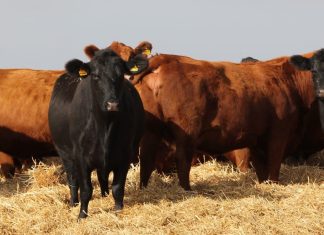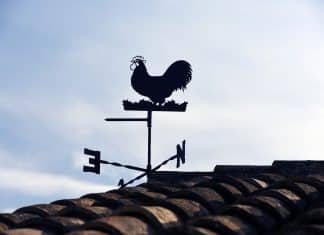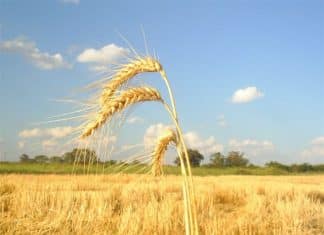Estimated reading time: 5 minutes
- Wireworm (Haemonchus contortus) is a silent but deadly enemy of the South African livestock producer.
- Dr Hanré Bredenkamp Ferreira, livestock unit manager at Afrivet, says that treatment against wireworm in South Africa will cost livestock farmers an estimated R595 million per year.
- This wireworm cycle has a developmental period of 18 to 21 days.
- Infected animals will start to show signs of anaemia and protein deficiencies, due to the blood loss caused by the worms.
- Prevention and control Wirevax G4200 is the only wireworm vaccine currently available in South Africa, and establishes immunity against wireworm in sheep.
Wireworm (Haemonchus contortus) is a silent but deadly enemy of the South African livestock producer. Wireworm infestation presents major challenges and can drain the local producer’s budget every year due to high treatment costs, production losses and animal mortalities.
Dr Hanré Bredenkamp Ferreira, livestock unit manager at Afrivet, says that treatment against wireworm in South Africa will cost livestock farmers an estimated R595 million per year. “Losses are especially big in years characterised by good rain. This is because wireworm larvae favour spring and summer temperatures for hatching, more so if conditions are damp or wet,” she explains.
Winter and early spring are not necessarily safe periods for livestock. During these periods sheep can become infected with larvae from a previous wireworm season. If temperatures rise and rain starts falling, the surviving eggs will release infected larvae again. Local faecal egg counts indicate that some animals continue excreting worm eggs, even in winter.
According to her, the incidence of resistant wireworms is an ever-increasing challenge leading to even greater losses. Livestock farmers continue to dose, but the worms simply don’t die. This means having to administer multiple doses to sheep and goats, until an effective remedy is found. Faecal egg count reduction tests are performed to identify an effective remedy.
Life cycle and infection
This wireworm cycle has a developmental period of 18 to 21 days. Wireworm larvae are ingested from pastures and then develop into adult wireworms in the host animal’s abomasum or ‘milk stomach’, where they lay approximately 10 000 eggs a day.
These eggs are again excreted in the manure and end up on the grazing. If environmental conditions are favourable, the eggs will develop into larvae which in turn are ingested by grazing animals. As soon as animals are put into infected camps, they will become infected. New camps can also become infected when infected animals are moved there.
Symptoms of wireworm
She explains that infection with the Haemonchus placei species is less common in cattle and usually does not lead to mortalities. “This species also does not show significant resistance to dewormers.” Infected cattle or calves can show signs of anaemia and protein deficiencies.
However, infection in sheep and goats can lead to death and production losses. Infected animals will start to show signs of anaemia and protein deficiencies, due to the blood loss caused by the worms. This will present as pale mucous membranes and bottle jaw, she says, and recommends that animals’ eye mucous membranes be monitored using the well-known Famacha system. If the mucous membranes are pale, the animal should be treated.
In areas where summer conditions prevail throughout the year, producers must be cognisant of worm populations on an ongoing basis. According to Dr Bredenkamp Ferreira, some people believe that the cold winter months will inhibit worm populations. “This is only partially true, as wireworm larvae are actually able to withstand extreme cold.” In winter the larvae use much less energy and therefore live longer. Some larvae can survive for more than a year, even in snow. Where hot, dry conditions with temperatures above 35˚C prevail, most larvae will die within two months.
Read more about the brown stomach worm
Worm eggs excreted in winter will be less likely to hatch, as temperatures are usually between 12 and 18˚C and moisture levels are low. Prevention and control Wirevax G4200 is the only wireworm vaccine currently available in South Africa, and establishes immunity against wireworm in sheep. Worm and worm egg counts have shown that the vaccine is able to reduce pasture infestation by 80 to 90%. This way, the infestation of animals grazing in camps can be reduced annually, which means a decrease in the use of dewormers as well as fewer clinical signs and improved production due to reduced protein losses.
Dr Bredenkamp Ferreira recommends the following preventive worm control measures in spring:
- Compile an effective grazing management programme to reduce the risk of infestation in camps.
- Camps should rest for long enough, and pastures should be alternated using cattle or horses. Vaccinated sheep will excrete fewer eggs, which will also reduce risk in the camp.
- Administer an effective dewormer and only treat animals that need it.
- Use a new-generation dewormer that contains derkantel or monopantel.
- Dose according to the animal’s weight and follow the directions on the product packaging.
- Select for adapted animals. Sheep that possess an inherent resistance to these worms, can be genetically pre-selected.
- Provide vitamin and mineral supplements to support animals’ immune systems.
- Use livestock feed with a high protein and tannin content, such as poor man’s lucerne. – Christal-Lize, Veeplaas
For more information, send an email to Dr Hanré Bredenkamp Ferreira at hanre.bredenkamp@afrivet.co.za.







